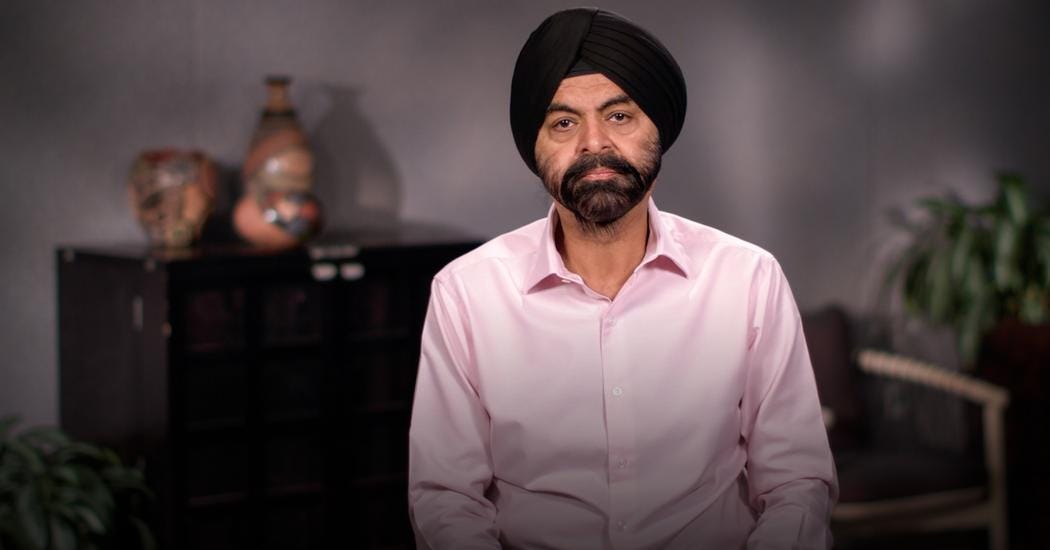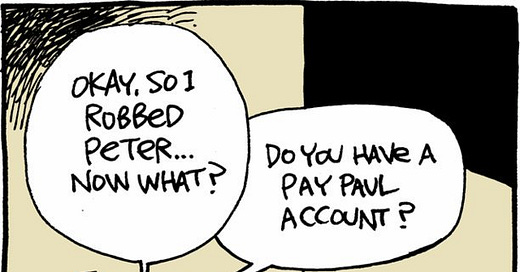
Welcome to our VSQ Conscious Collective Journal. We bring you updates from our portfolio companies along with thematic commentary on ideas and ventures that have transformative potential. Informative and nifty, this serves as a companion to your journey as a conscious investor.
The recent Gamestop saga is extraordinary—never in Wall Street history have the masses directly logged heads with high and mighty institutional players and hedge funds. Even in 2008, the Occupy Wall Street movement was largely a call to regulate Wall Street but never to directly stand up to it. Amidst all the drama whose all-star cast includes nameless financial vigilantes, large hedge funds, the SEC, and contrarian leaders from the Valley like Musk and Chamath, an important question worth asking is: how did the average Joe become the enemy of the high and mighty hedge funds? When did Wall Street, the closely guarded bastille of the 1%, become accessible to the common man, so much so, that they could almost throw the system off its rails? It was new-generation zero-commission retail trading apps that allowed millions of individuals to access financial markets with such ease that average Americans would’ve never imagined 10 years ago.
Agreed, that Wall Street is an alternative reality compared to the one we live in but even there financial technology is bringing access and improving lives at scale. We explore some questions about financial technology, better known as ‘FinTech’, the catch-all phrase that has remarkably changed our engagement with all-things-money. We explore how FinTech promises to bring financial access to the previously unbanked and help them get their finances in order and improve their livelihoods.
While 2020 was a complete killjoy for many, one of the remarkable things that happened when governments were grasping at straws, trying to extend stimulus and policy support to individuals and businesses, was the arrival of FinTech onto the main stage. FinTech swifted across years worth of regulatory cholesterol and helped provide policy support to distressed individuals and businesses alike during the pandemic. COVID-19 pushed FinTech from an emerging force to an active one in financial services, brimming with vitality and promise.
Is my telephone banking FinTech too?
While there’s no definition for FinTech set in stone, there’s definitely an internet-enabled component. FinTech is an umbrella term for using technology to enable ideas that improve processes for financial services.
How exactly does it work?
With strides in internet technology and the ubiquitous use of smartphones, there’s a treasure trove of data insights that can be used to build products and software that can help users, both individuals and businesses, to solve and smoothen all-things-finance. This could include an individual getting short-term loans to avoid loan sharks to small businesses using a billing-bookkeeping software that lets its consumers pay through their phones.
I bet it’s only for rich people
Quite the opposite, FinTech has in fact helped democratise access to financial services by significantly bringing down their cost. In both the developed and the developing world, FinTech adoption has helped the underserved and previously unbanked to build up a financial identity, providing them with much needed access.
In the developed world, FinTech firms are helping low-wage earners build financial identities that can help them build a credit history and apply for loans with banks and credit unions instead of predatory loan sharks. Data insights into individual credit-worthiness support the low-wage earners to help take short-term loans or access wages early, thus preventing hefty payday loans. Even insights generated from wearables have proved useful in creating new insurance products that provide individuals with better terms. During the pandemic, the U.S. government roped in FinTech firms like Square and Paypal to effectively deliver stimulus payments to households when traditional banks were scrambling to deliver cheques effectively. In a country like the U.S. where there’s only one bank branch per 4000 people, coupled with all the legalese and prerequisites it takes to open a bank account, the existence of FinTech firms has helped the unserved working poor to participate in the formal financial system.
In developing countries like India and Indonesia, there’s perhaps an even bigger opportunity due to huge market gaps arising from inefficient and incomplete financial markets. For example, in Indonesia, companies like BukuWarung are helping digitise the country’s small businesses that employ up to 96% of the country’s workforce.
Read more below about VSQ portfolio company BukuWarung that has created a digital bookkeeping app for Indonesia’s SMEs.
In India, FinTech helped enable the inclusion of 310 million people into the country’s financial system. Through advances in digital identity, India developed the Direct Benefits Transfer (DBT) scheme that effectively linked bank accounts to social welfare benefits, allowing people to gain access to government benefits and subsidies without having to navigate across the critical lack of physical branches in the rural hinterland or losing their rightful benefits due to red-tape and corruption. FinTech firms also came to the rescue of more than 250 million Indians when the government knee-jerked the nation into a demonetisation program invalidating 90% of the country’s currency in circulation. Obviously, such streaks of policymaking are as rare as the ‘great war against sparrows’ but with every challenge that undermined the logistics and reach of traditional banking, FinTech firms have pounced on an opportunity to create new market segments for themselves.
Learning how to sign a cheque
Apart from their inherent value-add, FinTech firms have also been instrumental in helping revolutionise financial education. Financial literacy is a problem across the world - according to S&P, which runs the world’s global survey of financial literacy, two-thirds of adults across the globe are financially illiterate. The American average hovers around 50%. Financial illiteracy is a critical barrier to financial inclusion; it undermines people’s ability to participate in banking services and making sensible choices regarding their well-being. The financial illiterate are most vulnerable to predatory products, defaulting on their loans and getting stuck in debt traps.
For some reason, financial literacy has been an elusive concept in our education system: it is required everywhere and is nowhere to be found.
However, recent developments in FinTech have allowed for financial literacy to be in-built into financial products. Products like a ‘personal finance coach’, and ‘budget-insights’ help individuals get granular insights on their finances in real-time and recommendations on how to build financial resilience. As people become much more meticulous with their finances, these apps also enable access to other financial products that might have been impossible to obtain before due to minimum deposit or credit score requirements.
Read more below about VSQ portfolio company Perch that helps underserved communities build a credit score and participate in the banking system
VSQ Portfolio Company Spotlight
BukuWarung
HQ’ed in Jakarta, Indonesia, BukuWarung (‘Buku’ and ‘Warung’, Indonesian for ‘book’ and ‘small kiosk’) is an accounting and credit management app for Indonesia’s 60 million ‘micro-merchants’. BukuWarung aims to make it easier for business owners to record their transactions digitally through their app in comparison to traditional pen-paper based bookkeeping. Since its launch in 2019, BukuWarung has signed up 600,000 merchants across 750 cities and towns in Indonesia and currently averages about 200,000 monthly users. Recently, BukuWarung launched Tokoko, a Shopify-like tool that enables merchants to create online stores through an app that is used by almost 500,000 merchants across Indonesia.
In July 2020, BukuWarung raised a pre-series A round led by Quona Capital. Previous investors East Ventures, AC Ventures, Golden Gate Ventures and Tanglin Venture Partners also participated in the round.
BukuWarung’s previous investors also include finance technology platform Plaid’s co-founder William Hockey; Tinder co-founder Justin Mateen; Superhuman founder Rahul Vohra; Adobe chief product officer Scott Belsky; former Uber chief product officer Manik Gupta; Spotify’s former head of new markets in Asia, Sriram Krishnan, amongst others.
Perch
Based in Los Angeles, California, Perch is a mobile app with an integrated credit score builder that allows students and low-income consumers to build a reasonable credit score by linking their bank account and social security number with Perch. The company reports non-traditional data points to credit bureaus, which in turn provide consumers the much needed credit score boost to avail a host of financial services such as credit cards, loans etc. that were previously inaccessible to them due to lack of a financial history and reasonable credit score. In December 2020, Perch raised a $2.5 million seed round which includes investors such as Marcy Venture Partners, Citibank, Softbank Opportunity Fund, Concrete Rose and Village Capital.
Cowrywise
Based out of Lagos, Nigeria, Cowrywise is a digital wealth management and financial planning solution that allows its users to seamlessly save and invest. Cowrywise is helping democratise access to savings and investment products to the growing demography of underserved Nigerian millennials and the middle class by expanding the previously limited wealth management space. At present, the firm has more than 220,000 users. Cowrywise recently raised $3 million in pre-Series A funding led by Quona Capital alongside investors such as Tsadik Foundation, Gumroad CEO Sahil Lavingia alongside a syndicate of Nigerian angel investors.
Tune in
Featuring conversations, firesides, podcast, and documentaries, curated by our very own impact warriors Lola and Pranaav. This time, we decided to focus on one recent, relevant piece that clearly outlines the current state of financial inclusion.

TED: Ajay Banga. Financial inclusion, the digital divide and other thoughts on the future of money
Ajay Banga needs no introduction. The ex-CEO and now Chairman of payments giant Mastercard led the company’s transition from a credit card company to a leading force in the payments space setting the tone for technologies like developing standards, like EMV, QR, contactless and tokens.
In this TED curated event, Banga reflects on what financial inclusion is and how it can change people’s lives. Here are some quotes that struck a chord with us:
“So financial inclusion has got so many facets, but the basic facet is to be counted, be included, be somebody, have the dignity of your identity, and of being included. That's really what financial inclusion is”
“What I'm trying to tell you is it's not about technology, it's about using what you have and using the technology you do possess and applying that in a smart, commercially sustainable way to real world problems. If you have good technology as well, well let's do it even better. But let's not use technology as the excuse to not do it”
In a world that revolves around money, lack of a financial identity is equivalent to lack of an identity itself. There’s a world of opportunity to incorporate the 2 billion people left behind to more dignified lives through financial inclusion.




